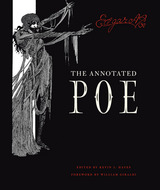
Edgar Allan Poe is perhaps America’s most famous writer. Adapted many times to the stage and screen and an inspiration to countless illustrators, graphic novelists, and musicians, his tales and poems remain a singular presence in popular culture. (His most famous poem inspired the name of the NFL’s Baltimore Ravens.) And then there is the matter of Poe’s literary influence. “How many things come out of Poe?” Jorge Luis Borges once asked. And yet Poe remains misunderstood, his works easily confused with the legend of a troubled genius. Now, in this annotated edition of selected tales and poems, Kevin J. Hayes debunks the Poe myth, enables a larger appreciation of Poe’s career and varied achievements, and investigates his weird afterlives.
With color illustrations and photographs throughout, The Annotated Poe contains in-depth notes placed conveniently alongside the tales and poems to elucidate Poe’s sources, obscure words and passages, and literary, biographical, and historical allusions. Like Poe’s own marginalia, Hayes’s marginal notes accommodate “multitudinous opinion”: he explains his own views and interpretations as well as those of other writers and critics, including Poe himself. In his Foreword, William Giraldi provides a spirited introduction to the writer who produced such indelible masterpieces as “The Fall of the House of Usher,” “The Murders in the Rue Morgue,” and “The Black Cat.”
The Annotated Poe offers much for both the professional and the general reader—but it will be especially prized by those who think of themselves as Poe aficionados.

All Benjamin Franklin biographers face a major challenge: they must compete with their subject. In one of the greatest autobiographies in world literature, Franklin has already told his own story, and subsequent biographers have often taken Franklin at his word. In this exciting new account, Kevin J. Hayes takes a different approach.
Hayes begins when Franklin is eighteen and stranded in London, describing how the collection of curiosities he viewed there fundamentally shaped Franklin’s intellectual and personal outlook. Subsequent chapters take in Franklin’s career as a printer, his scientific activities, his role as a colonial agent, his participation in the American Revolution, his service as a diplomat, and his participation in the Constitutional Convention. Containing much new information about Franklin’s life and achievements, Hayes’s critical biography situates Franklin within his literary and cultural milieu.

The life of Edgar Allan Poe (1809–49) is the quintessential writer’s biography—great works arising from a life of despair, poverty, alcoholism, and a mysterious solitary death. It may seem like a cliché now, but it was Poe who helped shape this idea in the popular imagination. Despite or perhaps even inspired by his many hardships, Poe wrote some of the most well-known poems and intricately crafted stories in American literature. In Edgar Allan Poe,Kevin J. Hayes argues that Poe’s work anticipated many of the directions Western thought would take in the century to come, and he identifies links between Poe and writers and artists such as Walter Benjamin, Salvador Dalí, Sergei Eisenstein, and Jean Cocteau.
Whereas previous biographers have tended to concentrate on the sorry details of Poe’s life, by contrast Hayes takes an original approach by examining Poe’s life within the context of his writings. The author offers fresh, insightful readings of many of Poe’s short stories, and presents newly-discovered information about previously unknown books from Poe’s library, as well as updated biographical details obtained from nineteenth-century newspapers and magazines. This well-researched biography goes beyond previous scholarship and creates a complete picture of Poe and his significant body of work.
Approachably written, Edgar Allan Poe will appeal to the many fans of Poe’s work—from “The Raven” to the “Tell-Tale Heart”—as well as readers interested in American literary history.
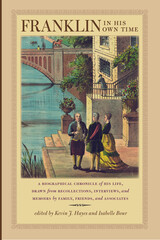
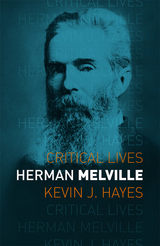
Hayes opens the book with an exploration of the revival of interest in Melville’s work thirty years after his death, which coincided with the aftermath of World War I and the rise of modernism. He goes on to examine the composition and reception of Melville’s works, including his first two books, Typee and Omoo, and the novels, short fiction, and poetry he wrote during the forty years after the publication of Moby-Dick. Incorporating a wealth of new information about Melville’s life and the times in which he lived, the book is a concise and engaging introduction to the life of a celebrated but often misunderstood writer.
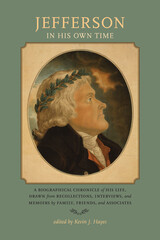
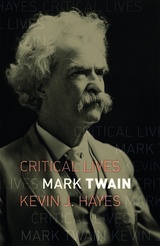
In this new account of one of the most fascinating, charismatic, and gifted characters in American literature, Kevin J. Hayes reviews Twain’s life and work, from his early journalism to his masterpiece Huckleberry Finn, and from the travelogue Life on the Mississippi to the public-speaking engagements that took him around the world, to his final work: the sprawling compendium Mark Twain’s Autobiography. Synthesizing the latest information and sifting through the evidence culled from both stories and certainties, Mark Twain is a fresh, clear-sighted account of a crucial American voice.
READERS
Browse our collection.
PUBLISHERS
See BiblioVault's publisher services.
STUDENT SERVICES
Files for college accessibility offices.
UChicago Accessibility Resources
home | accessibility | search | about | contact us
BiblioVault ® 2001 - 2024
The University of Chicago Press









